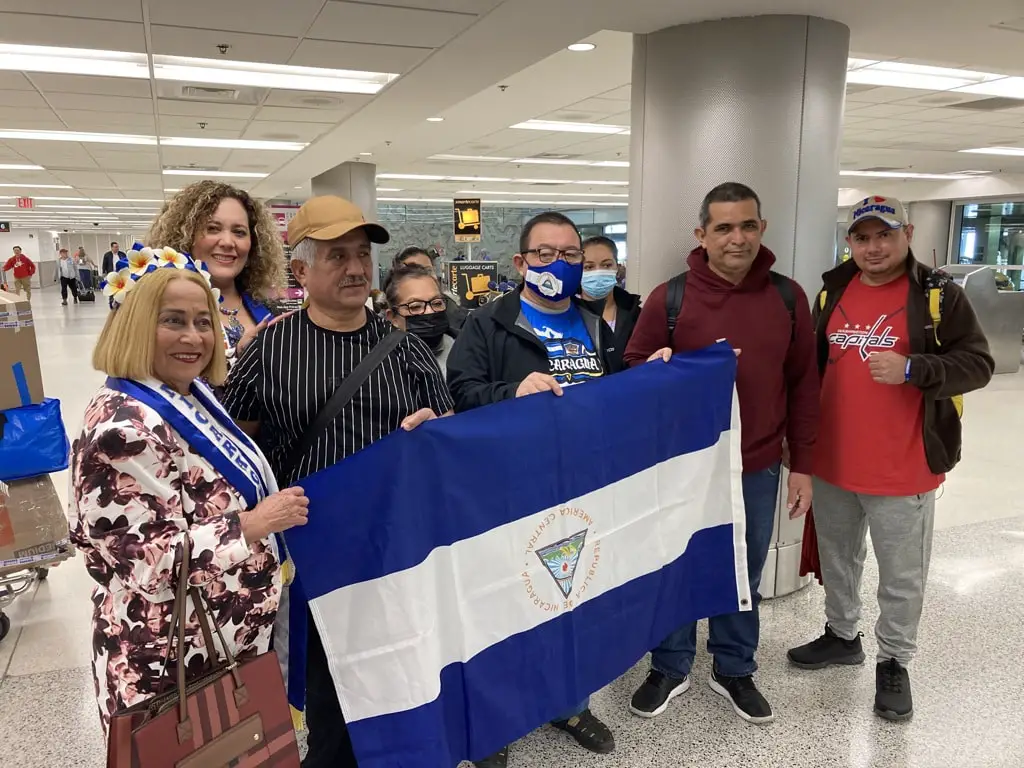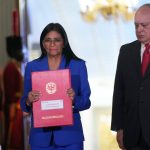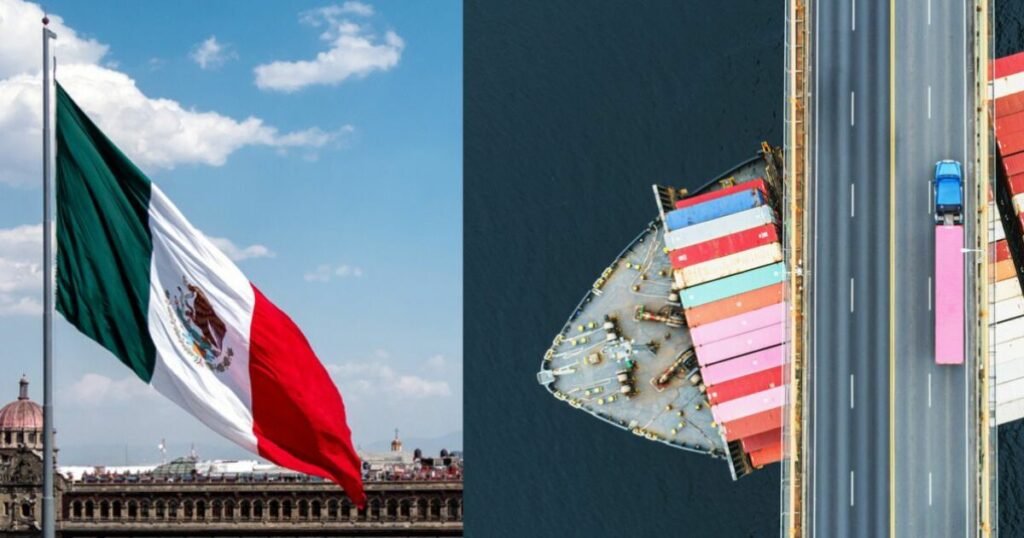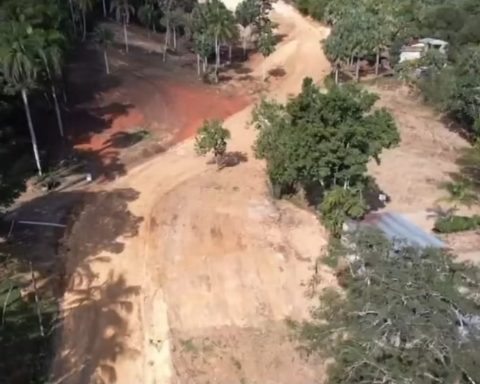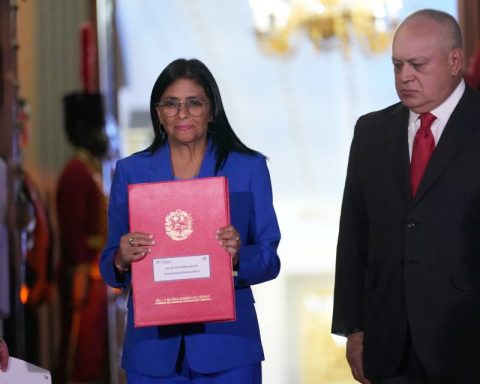The stripping of the Nicaraguan nationality and the exile of which the 222 political prisoners released on February 9, as well as the annulment of the nationality Bishop Rolando José Álvarezconstitute “another crime against humanity” perpetrated by the regime of Daniel Ortega and Rosario Murillo, affirm human rights defenders and international organizations.
They are crimes against humanity “by gravity”because “it is harmful”because “The level of lack of protection to which they are subjecting these people is offensive to human dignity” and because “is typified” in various international instruments, explained the human rights defender, Juan Carlos Arce, of the Nicaragua Human Rights Collective Nunca+.
Along the same lines, the Inter-American Commission on Human Rights (IACHR) repudiated the “arbitrary deprivation of Nicaraguan nationality”with which the majority of the 222 people would be stateless.
He recalled that the American Convention enshrines the right to nationality and the Inter-American Principles on the rights of migrants establish that “Every person has a non-derogable right to have a nationality and not be stateless, to retain their nationality, and cannot be arbitrarily denied, lost or deprived of it.”.
The IACHR has also recognized that “Nationality constitutes a non-derogable right of all persons, and arbitrary deprivation of it, especially as a penalty or sanction for political reasons, is contrary to international human rights law.”.
Lack of protection and vulnerability
To the strip citizens of their nationality and banish themthe Ortega and Murillo regime is leaving them in “a legal limbo”, they are taking away the possibility of demanding acquired rights and forcing them to move forcibly. It is not only about “sense of belonging” to a place.
“All rights to state protection derive from nationality”Arce warned. in such a way that “By taking away their nationality, they are left in a situation of absolute vulnerability and vulnerability, because there is no State that will answer for them”stressed the defender.
In this case, the Government of Spain has offered them nationality to the 222 and the United States has given them a parole humanitarian aid to remain in that country for up to two years. However, these are solidarity measures of the international community that do not exempt the responsibility of the State of Nicaragua.
The Center for Inter-American Legal Assistance in Human Rights (Calidh) pointed out that, “Although these acts are not valid in themselves under international human rights law, they are acts perpetrated by the State of Nicaragua” that affect the lives of these 222 people and those who are hereafter declared “traitors of the homeland”.
On February 9, the National Assembly reformed article 21 of the Political Constitution of Nicaragua which established that “heThe acquisition, loss and recovery of nationality will be regulated by the laws” and added that “traitors to the homeland lose the quality of Nicaraguan national”.
That same day, the Assembly approved Law 1145 that regulates the loss of nationality stipulated in article 21 of the Political Constitution of Nicaragua, establishing that the persons sentenced under Law 1055, Law for the Defense of the Rights of the People to Independence, Sovereignty and Self-Determination for Peace they will lose their Nicaraguan nationality.
It is inherent to the human being
Given these changes in the legislation, Calidh emphasized that “Nationality is not a concession of the States, that is, although they have the power to regulate it, they do not have the possibility of taking it away because it is inherent to the human being. Nationality is consubstantial to all people”.
The agency also recalled that article 15.2 of the Universal Declaration of Human Rights establishes nationality “as something that ‘belongs’ to the person”. A person is national because “It is your right that accompanies you from the moment you are born until you die and not because a constitution or a law says so.”.
The Inter-American Court of Human Rights (I/A Court HR) has said in its advisory opinion 04/84 that “Nationality, as is accepted by the majority, must be considered as a natural state of the human being. Such a state is not only the very foundation of his political capacity but also of part of his civil capacity.”.
Therefore, Calidh emphasized that “The State of Nicaragua cannot voluntarily dispose of the right to nationality of those who were born under its territorial jurisdiction because this violates its international obligations”. In addition, the prohibition of non-discrimination is also “a human right established in the Nicaraguan constitution and the treaties that bind the country”.
In addition, the agency warned that legally “it is impossible to impose this sentence” to the 222 exiled. First, because “Before they were forcibly displaced, the penalty did not exist and the Constitution itself, arbitrarily amended hours after their exile, establishes that there is no retroactive penalty.”.
In second place, “the State, by considering the forced deportation as a ‘sovereign act’, implicitly exercised the right of pardon: the exiles were pardoned when they boarded the plane”.
“Both the confinement that these 222 people lived through, and those who are still imprisoned, added to the arbitrary stripping of nationality and the deprivation of fundamental rights, is an international crime sanctioned as a crime against humanity by the Rome Statute, as it is part of a group persecuted for political or religious reasons, according to each case, conduct unacceptable by International Law”stressed the Calidh.
They urge the State to guarantee rights
The IACHR urged the Government of Nicaragua to “guarantee full access and enjoyment of the right to nationality, as well as adopt measures to prevent and eradicate statelessness”for which he called on the State to “repeal recent legislative changes contrary to international and inter-American standards on the matter and called for comprehensive reparation for the violations committed against these people from the moment of their detention”.
He recalled that since 2013 Nicaragua has been part of the Convention relating to the Status of Stateless Persons of the United Nations organization and urged the States of the region to “adopt or strengthen regional cooperation mechanisms” that allow “assist and recognize stateless persons and consequently grant them the special protection they require, guaranteeing access to territories and processes to provide international protection”.
